Dear FIX,
Network FMB has just been launched on coursera.
OK, so what does "launched" mean? We will not be streaming the live flipped classroom time at Princeton (although some experiments/guest lectures will be recorded and made available to you too). By "launching" on coursera we mean
a. lecture videos are now on cousera (and will continue to be on YouTube Channel "network20q" too), and they are captioned, and they have multiple choice questions at the end of each video module. You can see video/lecture schedule on the coursera panel.
b. discussion forum now open on coursera (for casual chat while you're on facebook, post on our walls www.facebook.com/mung.chiang.5 And for archival quality wiki or blog, log in www.network20q.com)
c. homework will be posted on cousera starting Wed (we will post standard solution one week afterwards, and will collect your self-graded scores through surveys)
What about the textbook? Your demand exceeded their supply, and now it's back-ordered. And Amazon kindle version production follows its secret formula. So to bridge the gap in the meantime, we have made the first three chapters (for lectures 1-3 this and next week) available on coursera through a link as one of the tabs (we won't cover the Advanced Material section of any chapter in this course).
What's the first thing you should do now? Fill out the demographics survey! So that we can better understand the composition of the 40,000 of you enrolled in the class. Hit the Survey button on the coursera panel. It'll only take 2 minutes.
Mung Chiang (chiang.coursera@gmail.com)
and the teaching staff
(Follow us @network20q)
Acknowledgement: We are grateful to the Class of 1972 Teaching Initiative at Princeton University and to a National Science Foundation NetSE grant.
You are receiving this email because inglesagil@yahoo.com is enrolled in Networks: Friends, Money, and Bytes. To stop receiving similar future emails from this class, please click here. Please do not reply directly to this email. If you have any questions or feedback, please post on the class discussion forums. For general questions, please visit our support site.
Hi Everyone in Networks FMB: Welcome to the launch of our course! After a week of pre-launch communication (they're all copied below for reference), we're finally starting the course on Sept. 17, 2012.
Check out the course schedule. (we upload video one week ahead of the corresponding lectures at Princeton University)
Check out the lecture videos (with multiple choice quiz question at the end of each video module).
And on Wed we'll put Homework 1 there. (we provide solutions for you to check yourself one week later)
Start discussion threads on the Forum. (and remember to tag each thread at least with a number indicating the video module you're referring to, using "Video 1a", "Video 18d" etc.)
But the first thing we need you to do is to fill out the demographic survey. There's a tab for that right below the Homework and Grand Challenge Homework. The survey is in multiple choice format, and we only ask for coarse-granular information. The sole use of the survey is to understand the composition of almost 40000 of you, and to help us tailor our teaching style more effectively.
Enjoy.
You are receiving this email because inglesagil@yahoo.com is enrolled in Networks: Friends, Money, and Bytes. To stop receiving similar future emails from this class, please click here. Please do not reply directly to this email. If you have any questions or feedback, please post on the class discussion forums. For general questions, please visit our support site.
Dear FIX,
You might be wondering: So what's Princeton University's own course looking like now? The lectures are in video, so does it still make sense to repeat the same lecture in the classroom? While that'll save me a lot of time to focus on my research lab, it probably isn't the right way to go forward.
That's why I'm flipping the classroom. If you haven't seen Khan Academy and the TED talk by Khan, you should check those out. Inspiring. Khan was mostly talking about elementary school to high school, but the same principle applies to college even better: Students watch the lectures before coming to the classroom, and then in the classroom they and the their teacher ask each other questions.
Flipping a classroom does not diminish classroom time, it enhances it. One-way open-loop lecturing into a hall filled with facebook-checking students: how is that a good use of classroom time? Let's leave one-way lecturing to YouTube, and save classroom time for interactions.
So, in ELE/COS 381 (the code for this course at Princeton University), we ask all Princeton students to watch lecture videos before coming to each class session. Then in class we
1. Debate and discuss
2. Demo and experiment
3. Guest lecture
We'll record some of the demos and guest lectures (by 20 outstanding guest lecturers from industry, academia, government), subject to their consent, and share with you too.
Now this means a whole lot of additional teaching load to a professor (and I have to keep persuading myself that I'm not spending excessive amount of time on teaching innovations), but it's going to make engineering classroom much more meaningful to the students.
You know these emails are long. So let's keep going.
We asked "what SHOULD a classroom be like?" Now how about the question "what IS open online education?" Some factors are obvious:
1. Course material access (lecture video, slides, quizzes..., by the way, the videos will be captioned on coursera)
2. Social learning environment (this is the only way it can scale up, each new student is also a new potential mini-TA)
3. Assessment (quizzes, homeworks, exams...)
Now, "learning" and "certification" are two distinct concepts. At this point, Princeton is trying out open online education's "learning" part, but not the "certification" part. I'm using GCH and Kudos to provide incentives, but they are not certificates. Please still do the homeworks and check against the standard solutions that we'll provide. We trust you to self-report your scores (more on this on Wed) so that we can better understand how to personalize education and adjust our teaching style. There's no reason not to tell us the true scores, since there's no pass/fail/certificate at stake anyway.
(This whole certification thing is actually a big debate point in this movement: the consistency, authenticity, privacy, and profit-seeking issues associated with certification. And you may have heard that some of these platforms are partnering with Pearson to provide real certification exams, but you got to pay to take those exams.)
4. Interaction with teaching staff (e.g., the TAs and myself are pouring a lot of time every day and night into this course, although we may not be able to reply to every email/tweet/FB upate/forum threads). Maybe virtual, maybe in-person meetup (check out www.facebook.com/mung.chiang.5 under Events or Groups, and you should be able to sign up directly).
So when we "start" tomorrow, it's actually interesting to reflect on what "start" means for an online education experience. Nor is it always clear what the "end" of a course means. The videos, homework, social learning environment will all be there, more like on-demand movies than channelized TV.
In terms of platforms, YouTube, Facebook, Twitter are already open for this course. Starting tomorrow (clock is set by US east coast time), coursera video/forum and network20q wiki/blog will also be open.
Of course having a schedule and some deadlines help move things along. And for this semester, we synchronize the schedule with the Princeton University offering of the course. For example, teaching staff will focus on Lecture 0 and 1 this week on the coursera forum.
That's it for this email. And for all the pre-launch announcements.
We have been shooting you one email every day this past week, leading up to the Sept. 17 "launch". That's tomorrow.
Mung Chiang (chiang.coursera@gmail.com)
and Network FMB Teaching Staff at Princeton
(Follow us on Twitter @network20q too!)
You are receiving this email because inglesagil@yahoo.com is enrolled in Networks: Friends, Money, and Bytes. To stop receiving similar future emails from this class, please click here. Please do not reply directly to this email. If you have any questions or feedback, please post on the class discussion forums. For general questions, please visit our support site.
Dear FIX,
We're overwhelmed by the encouragement and thoughts many of you left on our facebook wall: www.facebook.com/mung.chiang.5
We've also created about 10 local study groups. They're open groups on FB, so you can just join. These include Washington DC, Boston, Bay Area, Seattle, Dallas, Cologne Germany, Seoul Korea, Toronto Canada, Vancouver Canada and Mumbai India.
I'll be traveling (for conferences and meetings) to many of these places in the next few weeks. In each case, we've created a "Meetup with Mung" event, usually 9pm at a hotel lobby, for me to hear your questions, ideas, etc about the course, and later in the semester to look at your GCH solutions. Here's an almost-Groupon-style protocol: if there're 5 or more local members signed up for an event (by 5pm the day before the event), we'll host that event. Otherwise, we won't (and wait for the next opportunity).
So please check out these study groups and the events mentioned today.
(Of course feel free to organize study groups without meeting me, which by the way will make your own meetup a lot more pleasant.)
You might feel like being overwhelmed at times too. Just remember:
1. I didn't know how to answer half of these 20 questions about our networks two years ago (and I still don't quite know in several cases). What matters most is not how much you cover in a course, but how much you uncover.
2. You may have a full time job, part time jobs, kids to take care, "normal" courses to take at your college or high school... Don't worry if you have to "slack" a little. The beauty of YouTube is that you can watch it later. And the questions you have may be already answered by follow classmates on coursera or network20q when you log in over the weekend.
3. Your backgrounds vary a lot. Really a lot. We can't target each individual perfectly. But look at it this way: there's no pressure of passing or failing this course, it's all about learning something. Maybe a little, maybe a lot. Maybe just watch first two modules of each lecture, maybe go all the way to finish a GCH and get a new job. These are all good. There's no right or wrong answer when it comes to how you want to learn in this course.
Alright, so what's the subject of this announcement?
While there's no signed certification (which by the way brings out interesting issue of how to authenticate student activities if certification is issued, unless you pay for proctored exams like through ETS or Pearson), we will have a virtual pat on the back, what we call:
Kudos List
Kudoes stands for 'glory' or 'recognition' here. It's a like a badge. When we see someone doing really well in forum/wiki/blog or participates a lot in some experiments we'll run later in the course, we'll announce that name (and city of residence) with a big round of virtual applause on
Twitter (we have 2000 followers now, still growing fast)
Facebook (we have 2500 friends/subscribers now, also growing fast)
network20q website's permanent Kudos List
You can't turn this into bread or gold, but it'll visualize a sense of accomplishment.
That's it for this email.
We'll be shooting you one email every day this whole week, leading up to the Sept. 17 launch. Each day we'll talk about a feature of the course. Today's about course Kudos List. You'll see another feature in tomorrow's announcement.
Talk to you then.
Mung Chiang (chiang.coursera@gmail.com)
and Network FMB Teaching Staff at Princeton
(Follow us on Twitter @network20q too!)
Dear FIX,
This email contains two main parts.
Part 1: Clarifications.
We were overwhelmed by the interest in the textbook. Apparently so did Amazon and Cambridge University Press. So now they're running out of stock (on the same day they receive the stock). They had stock for next day shipping in the afternoon yesterday, by early evening it became a 1 week wait. Then even longer into the night.
For this reason, and for those of you outside of US, you need e-book/kindle option.
So here's what I'll do:
A. I'll press the publisher to issue e-book version soon, maybe end of next week.
B. I think Amazon runs an algorithm to decide when it makes sense for them to make a textbook into kindle version. More orders of the hardcopy, faster kindle version comes out. So we're on our way there. But I don't get to control Amazon's secret formula. (We'll actually reverse engineer Amazon's ranking formula in Lecture 5).
C. In the meantime, to bridge the gap, I'll ask the publisher so that I can email all of you the first several chapters directly on Mon.
But let me emphasize again: this textbook is optional. It is not required. You do not have to buy it. The lectures and homeworks will be self-contained. Coursera courses are free. But courses also have optional textbooks.
Furthermore, you'll see Advanced Material as Section 4 of all the 20 Chapters. We will not cover those sections in lectures. Those are beyond typical undergrad level.
Changing topic: to avoid too many websites, I am not using Google+ or LinkedIn.
Finally, on the lecture videos: they come in 5-6 modules each lecture. First 1-2 modules are easy to follow. Later ones may need you to rewind and relisten and re-digest. A key advantage of YouTube lectures is that you can rewind to suit your needs. This course is a serious technical course. So you should expect some parts of each lecture to be non-trivial, and one-pass listening may not be sufficient. But then again, no pain (like listening to me), no gain. The more you put in this course, the more you get out. But you can also choose to put in a little time, and get the little but still positive benefit out. That's of course up to you.
Part 2: The feature of the day today is our course website:
www.network20q.com
It'll be open next Mon. You can log in using coursera username and password.
You already have coursera for Discussion Forum and Homework. So what's this website for? Well, it's for "archival" quality blogs and wikis:
A. Blogs: if you have time and insight to write up really thoughtful blogs, you can do it here. Anyone in the world can read and comment. (but only coursera students can write).
B. Wikis: remember the crowd-sourced book I mentioned in yesterday's email? That'll come out of this Wiki. This is for really structured and high quality content. Think of writing a textbook section.
I know there's a lot of media out there we're using. So here's a summary:
If you want to watch lecture videos: go YouTube or Coursera.
If you want to do homework and ask/answer specific points in lecture/homework: go Coursera forum.
If you want to write book/blogs with archival quality: go course website www.network20q.com
If you want to chat about your feelings in taking the course and form study groups: go Facebook.
If you want to hear long winded announcements like this one: check emails.
If you want to get short sound bites: follow us on twitter.
We call this: "NEUFaCT" of communication in this course:
Network20Q Email Utube Facebook Coursera Twitter
That's it for this email.
We'll be shooting you one email every day this whole week, leading up to the Sept. 17 launch. Each day we'll talk about a feature of the course. Today's about course website. You'll see another feature in tomorrow's announcement.
Talk to you then.
Mung Chiang (chiang.coursera@gmail.com)
and Network FMB Teaching Staff at Princeton
(Follow us on Twitter @network20q too!)


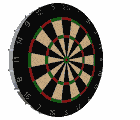





















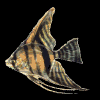








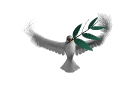














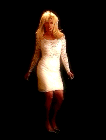





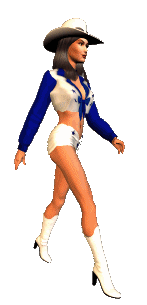


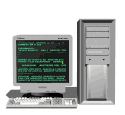






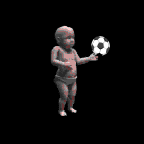







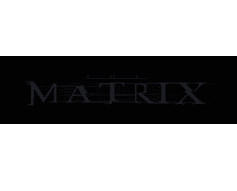


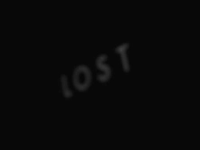

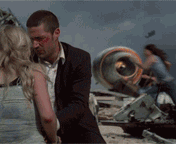


No hay comentarios:
Publicar un comentario